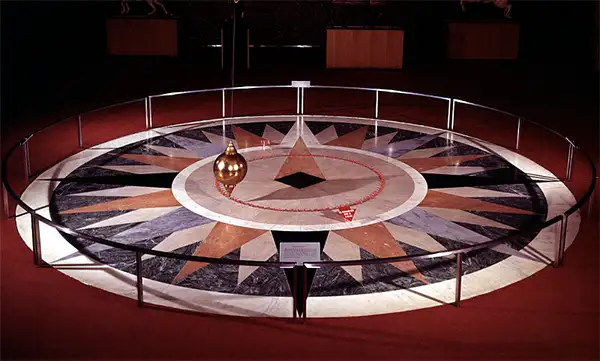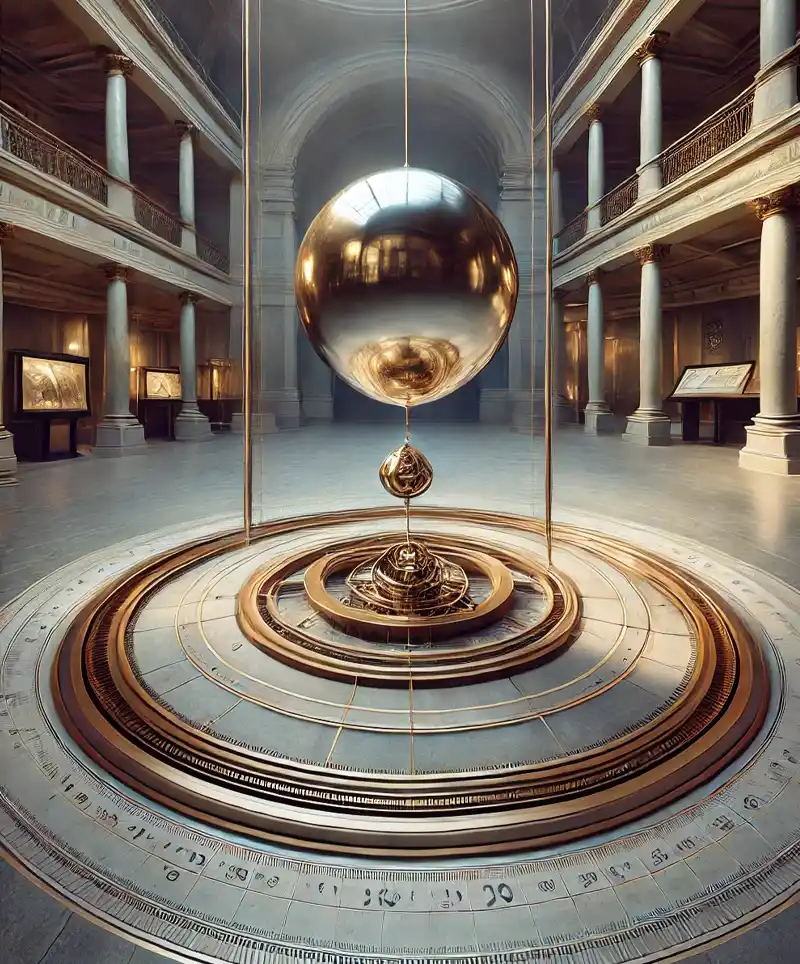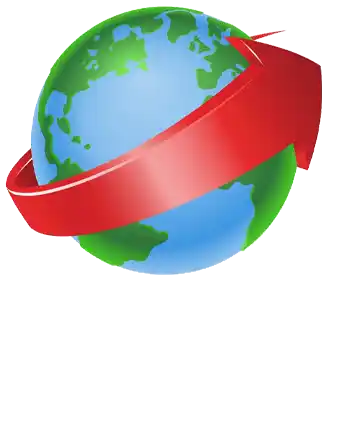Spinning Right Round
Hold on to your hats, compasses, and any loosely tethered small pets because we're about to embark on a whirlwind adventure – it's Earth's Rotation Day! That's right, on January 8th, we take a moment (or a full 24 hours, to be precise) to celebrate our planet's relentless spinning. It's like a non-stop planetary dance party, and Earth has been grooving for over 4.5 billion years without a single bathroom break. Talk about an unshakeable commitment to the boogie!
In 1851, Leon Foucault, a Frenchman with a flair for dramatics and pendulums, decided to show the world what the Greeks had been philosophizing about since 470 BC: Earth is more than just a round rock – it's a cosmic twirler! This revelation came as quite a shocker. Imagine finding out that your whole life you've been living on a giant, twirling ball in a vast cosmic dance floor. It's enough to make anyone's head spin faster than Earth on its axis!
So, how do we honor this dizzying day? Well, for starters, you might want to avoid playing "Ring Around the Rosie" – we're already doing enough spinning, thank you very much. Instead, you could swing by a local science museum to check out Foucault’s Pendulum, where the Earth's rotation is on full display. It's like watching a planetary disco ball, minus the funky beats and disco lights.
The Discovery That Made Our Heads Spin
Let's wind the clock back to 1851, a time when top hats were the rage and science was about to get a whole lot spinny. Enter Leon Foucault – a French physicist with a penchant for pendulums and a curious mind. Foucault wasn't just your average Joe with a swinging bob; he was on a mission to prove a point that would literally change the way we look at the world.
The Greeks had been chatting about Earth's rotation since 470 BC, but back then, their idea was more of a philosophical musing than a proven fact. It was like saying, "Hey, maybe our planet is doing the tango around its axis, but who really knows?" Fast forward to the 19th century, and Foucault decided it was high time to turn this ancient Greek hunch into a full-blown scientific hootenanny.
 With a bit of string, a weight, and what we can only assume was a flair for dramatic pauses, Foucault set up his pendulum in the majestic Panthéon in Paris. Imagine a grand hall, a hushed crowd, and a pendulum swinging with the grace of a ballroom dancer. As the pendulum swayed back and forth, something magical (or, rather, scientific) happened. The plane of the pendulum's swing appeared to rotate, demonstrating before the awe-struck onlookers that it was not the pendulum changing direction but the floor beneath them – and the entire Earth along with it!
With a bit of string, a weight, and what we can only assume was a flair for dramatic pauses, Foucault set up his pendulum in the majestic Panthéon in Paris. Imagine a grand hall, a hushed crowd, and a pendulum swinging with the grace of a ballroom dancer. As the pendulum swayed back and forth, something magical (or, rather, scientific) happened. The plane of the pendulum's swing appeared to rotate, demonstrating before the awe-struck onlookers that it was not the pendulum changing direction but the floor beneath them – and the entire Earth along with it!
This was no parlor trick. This was Foucault giving the world a visible, undeniable proof that Earth was, indeed, spinning like a debutante at her first ball. It was the scientific mic drop of the century. No longer could anyone say the Earth was as still as a lazy Sunday afternoon. Foucault had shown, with a simple swing, that we were all aboard a twirling, whirling orb in the vast dance hall of space.
So, every time you feel a bit dizzy or the world seems to be spinning a bit too fast, remember: it's not just you. It's also a 4.5-billion-year-old planet, twirling its way through the cosmos, just as Foucault's pendulum so elegantly showed us. Now, that's a spin cycle we can all get behind!
A Celebration That's Anything But Stationary
When Earth's Rotation Day rolls around, the planet doesn't just keep spinning; its inhabitants throw a party that's truly out of this world! It's January 8th, and all over the globe, people are gearing up to celebrate Earth's tireless twirling. But how does one honor a planet that's been spinning non-stop for billions of years? With a spinning shindig, of course!
Let's start with the science buffs and aspiring astronomers. For them, Earth's Rotation Day is like the Super Bowl and Mardi Gras rolled into one. They flock to science museums, where Foucault's Pendulums swing with hypnotic precision, proving Earth's rotation in a way that's both elegantly simple and simply elegant. It's a sight that can make you feel both incredibly small and part of something unimaginably huge, all at the same time.
But it's not just the adults who get in on the action. Teachers across the globe seize this day to transform their classrooms into miniature Earths. They launch into interactive lessons that could involve anything from spinning tops to DIY pendulums. Imagine a classroom full of miniature Foucaults, each trying to prove Earth's rotation with household items. It's chaotic, educational, and a whole lot of fun.
And let's not forget the themed parties, where things get really spinning! These parties are a haven for every space nerd, science geek, and star-gazer. Guests might show up dressed as their favorite physicists - because nothing says party like a room full of Einsteins and Newtons. You might see a Copernicus complaining about the DJ's geocentric playlist or a Galileo challenging party-goers to a game of "pin the pendulum on the Earth."
The decorations? We're talking about blue and green balloons, star-studded tablecloths, and maybe a disco ball to represent the Sun (because why not?). The food is equally themed: meteorite meatballs, Saturn rings (onion rings, to the layman), and perhaps some rocket fuel punch to keep the party orbiting.
And let's not skip the pièce de résistance: Earth-shaped cookies and cakes. Baking enthusiasts might go all out with spherical cakes that rotate on their stands, while the less culinarily inclined stick to simple blue and green cupcakes. Either way, it's a delicious tribute to our spinning home.
As the party winds down, guests might step outside to gaze at the stars – a perfect end to a day celebrating our place in the cosmos. As they look up, they're reminded that they're standing on a giant rock, twirling through space at about 1,000 miles per hour. It's enough to make you dizzy with awe – or maybe that's just the punch.
In conclusion, Earth's Rotation Day is a celebration that's anything but stationary. It's a day to spin, learn, party, and maybe – maybe – get a little dizzy in the best possible way. Here's to our spinning planet, may it keep on twirling for eons to come!
Earth's Rotation Day isn't just about the spin; it's a nod to our evolving understanding of the cosmos. It reminds us that what we know today might be the tip of the astronomical iceberg. And let’s face it, without Earth's daily spin, life would be a lot less interesting. No day and night, just an eternal game of "is it time for breakfast or dinner?"
But let's not get too carried away. If Earth suddenly stopped spinning, we'd have bigger problems than missing this holiday. Imagine the chaos: dogs and cats, not to mention your morning coffee, floating in an atmosphere still moving at Earth's original 1100-mile-per-hour rotation speed. It's a scene straight out of a sci-fi movie, minus the popcorn.
So, as we celebrate Earth's Rotation Day, let's give our planet a round of applause (pun intended) for keeping things lively. Whether you're watching a Foucault Pendulum swing, reading up on Leon Foucault, or just appreciating the fact that you're not flying off into space, remember – we're all in this spin together. Here's to another year of twirling through the cosmos!
Oh, a word of caution: if you plan to mimic Earth's rotation by spinning around rapidly, maybe sit down first. We wouldn’t want this celebration to turn into a spinning room day. Happy Earth's Rotation Day, everyone – stay grounded!
Please Share our Content






 With a bit of string, a weight, and what we can only assume was a flair for dramatic pauses, Foucault set up his pendulum in the majestic Panthéon in Paris. Imagine a grand hall, a hushed crowd, and a pendulum swinging with the grace of a ballroom dancer. As the pendulum swayed back and forth, something magical (or, rather, scientific) happened. The plane of the pendulum's swing appeared to rotate, demonstrating before the awe-struck onlookers that it was not the pendulum changing direction but the floor beneath them – and the entire Earth along with it!
With a bit of string, a weight, and what we can only assume was a flair for dramatic pauses, Foucault set up his pendulum in the majestic Panthéon in Paris. Imagine a grand hall, a hushed crowd, and a pendulum swinging with the grace of a ballroom dancer. As the pendulum swayed back and forth, something magical (or, rather, scientific) happened. The plane of the pendulum's swing appeared to rotate, demonstrating before the awe-struck onlookers that it was not the pendulum changing direction but the floor beneath them – and the entire Earth along with it!








 "Sláinte!" is a traditional Irish expression used as a toast, equivalent to "Cheers!" in English.
"Sláinte!" is a traditional Irish expression used as a toast, equivalent to "Cheers!" in English.